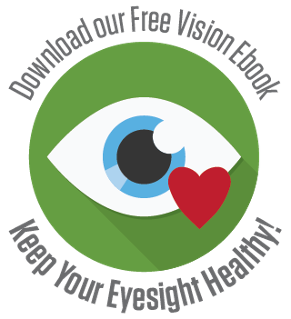By Kate Ranta on Mar 2, 2020 @ 10:00 AM
The eyes -- many of us take them for granted. But because they provide us with so much information about the world around us, it’s very important to take good care of them. Since it's Save Your Vision Month, there’s no better time to talk about your eye health! Here are some common eye diseases and the signs that you should watch out for:
Glaucoma - Glaucoma is a complicated eye disease. It damages the optic nerves and can lead to progressive, irreversible vision loss. It is the second leading cause of blindness in the United States. There are commonly no warning signs until the damage has become too severe.
Cataracts - Cataracts occur when there is a build-up of proteins in the lens, which gives your eyes a cloudy appearance. The build-up prevents light from passing efficiently through the lens and this gradually causes loss of vision. Your vision may continue to blur even when wearing corrective lenses, you might also suffer double vision and be very sensitive to sunlight.
Diabetic Retinopathy - This eye disease occurs due to damaged blood vessels in the retinas of those who suffer from diabetes. These vessels leak fluid, causing them to swell and cloud your vision. The condition is almost as silent as glaucoma. You typically don't experience any symptoms for a long period of time. When symptoms do occur, they may include seeing spots or floaters, blurred vision and difficulty seeing at night. This eye disease can lead to glaucoma and complete blindness if not treated. This is why the American Optometric Association recommends that those with diabetes have a comprehensive eye exam annually.
Age-related Macular Degeneratio (AMD) - AMD is a common hidden eye disease that causes vision loss among people ages 50 and older. It causes damage to a spot near the retina known as the macula. The macula is needed for sharp vision. AMD can progress at such a slow rate that vision loss is not noticeable for years. Symptoms of this eye disease include:
- Blurred or distorted vision
- Impaired vision to the point where glasses do not help
- Decreased light perception in one or both eyes
These eye diseases can cause permanent blindness for you or your loved ones if they are not caught in time. Make it a habit to cover each eye at least once a week and check whether there is a difference in your vision. If there are any noticeable problems, get your eyes checked immediately. As for overall eye health, having an exam at least once a year is essential for preventing and managing eye conditions.





comments